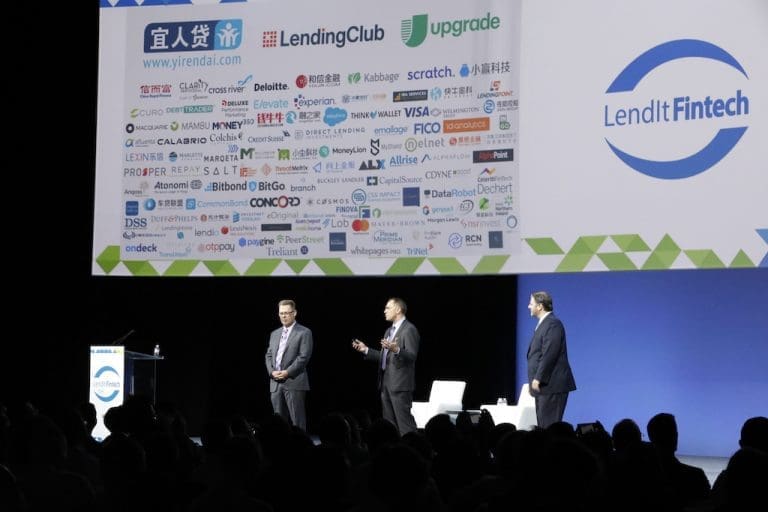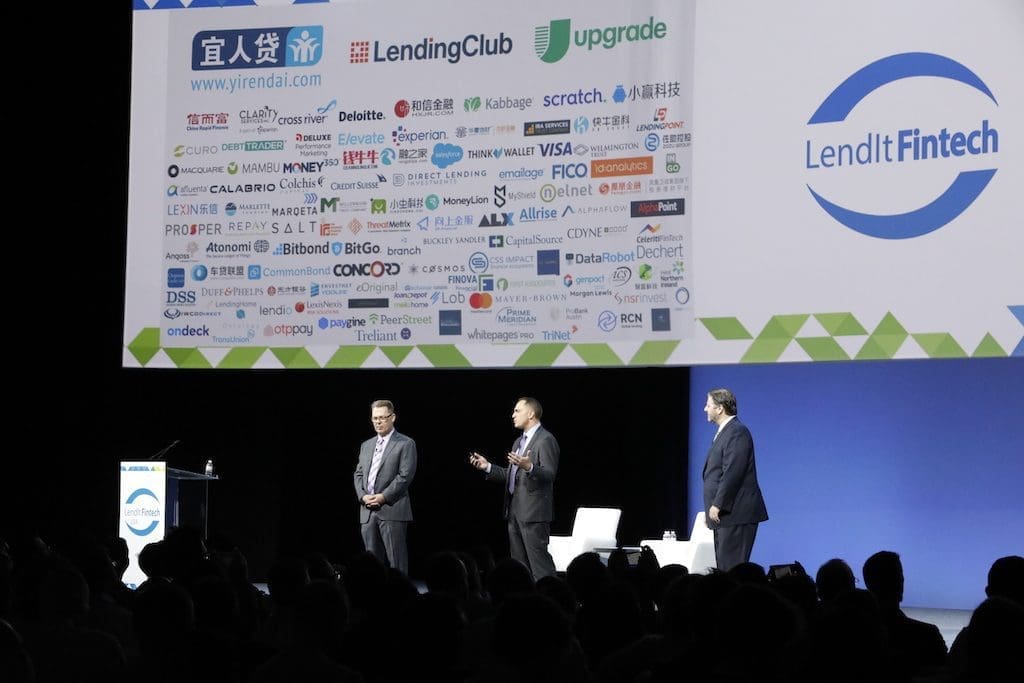
Last week the sixth annual LendIt USA conference took place in San Francisco. Officially known as LendIt Fintech USA 2018 this event was, in my opinion, the best we have ever produced. As I do at this time after every LendIt event, here are my thoughts on some of the ideas that were shared by the keynote speakers as well as a summary of the rest of the event.
The opening keynote, for the second year in a row, was delivered by Scott Sanborn, the CEO of LendingClub. He gave a different kind of presentation this year. He didn’t talk much about LendingClub at all, instead choosing to focus his keynote on financial health and the looming crisis that maybe coming. He gave us all something to consider beyond just disruption, he said we should think about three key areas: financial inclusion, regulatory innovation and customer alignment. He ended with a call to action for the industry. He wanted everyone to focus on what problem you are solving and what you can do to help restore financial health to all Americans.
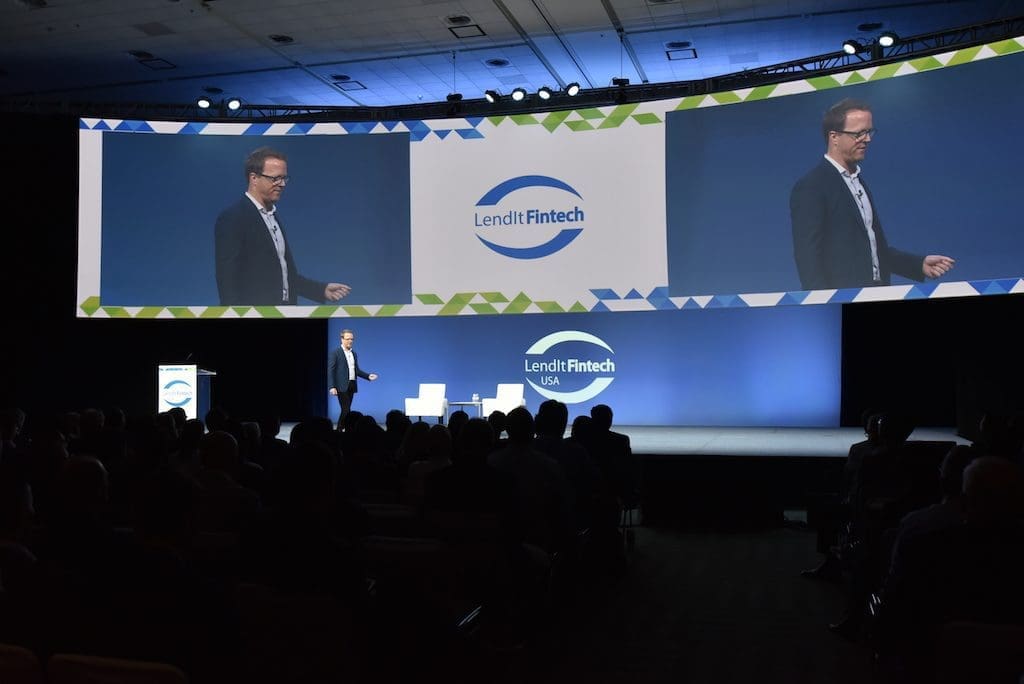
For the first time ever we had the CEO of Quicken Loans, Jay Farner, on stage at LendIt. Quicken Loans has become the largest mortgage lender in the country, bigger than all the banks. It was interesting to hear Jay talk about innovation. He said it is not enough today to just be faster. You need to fundamentally rethink the process, do it in a new and different way. This is where good entrepreneurial businesses will succeed because they start with a blank sheet of paper. He said there is no reason a mortgage should take longer than 10 days.
Long time readers of Lend Academy will know the name Chris Larsen. He was the co-founder and former CEO of Prosper. He left Prosper in 2012 to start Ripple, his most ambitious startup yet. Ripple is trying to revolutionize the way money is sent around the world. As he said in his discussion with Jo Ann Barefoot in finance, when it comes to moving money, we are living in a pre-internet world. It takes days to send money around the world and yet email moves instantly. It is inevitable that this will change and when it does Chris said there will be a Cambrian explosion in innovation and economic development.
Max Levchin first made a name for himself as a co-founder of PayPal but today he is most well known as the CEO and co-founder of Affirm. Affirm is attacking point of sale financing, a space that is somewhat fragmented with few big incumbent lenders. In his discussion Max said that software is eventually going to eat the credit card. We are going to move to payments made by phone but we have more work to do on the software side before that becomes the standard way people pay. Interestingly, he also attacked the APR (annual percentage rate) standard as a bad way of judging credit products. We need to reinvent a way to compare financial products that is not just focused on the APR.
In his first public appearance as the new SoFi CEO, Anthony Noto spoke with Emily Chang of Bloomberg about what attracted him to the company after so many years at Twitter. What he saw was a passion for the business from their members and a company that was growing and doing well. He realized there were some cultural issues that came to a head in 2017 but by the time he had started many of these issues were already being dealt with. He said that of the 20 most valuable private tech companies in Silicon Valley, SoFi is the only company that grew revenue by more than 30%, had positive EBITDA, positive GAAP net income and positive cash flow.
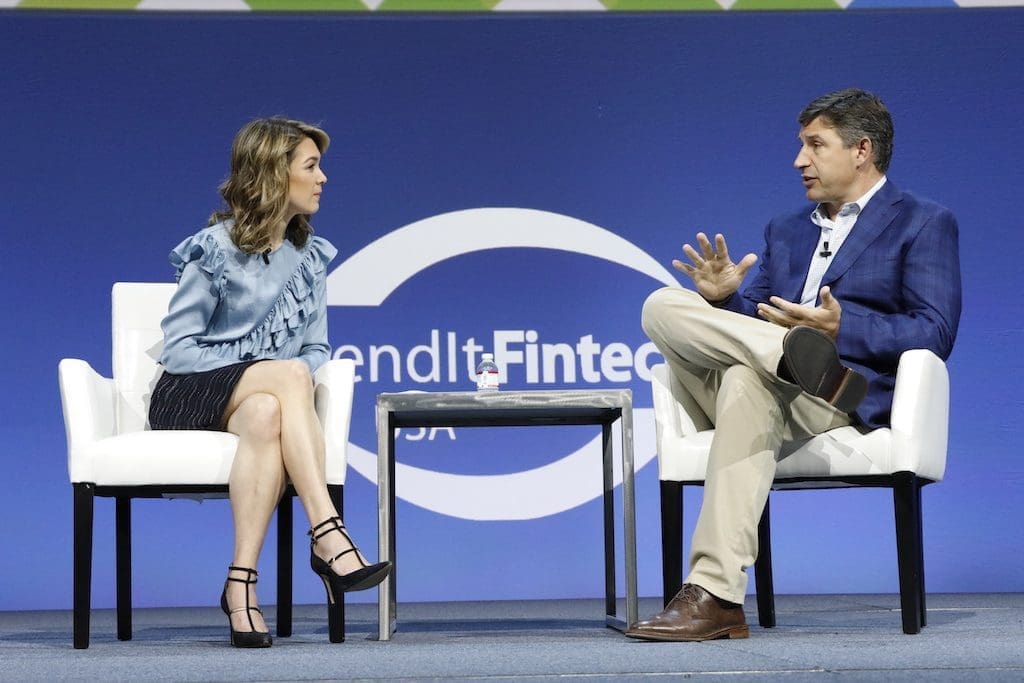
I interviewed the Chief Commercial Officer of Marcus by Goldman Sachs, Omer Ismail, who announced that they had just passed $3 billion in total loans originated (in less than 18 months) and had $20 billion in deposits now. Later in the interview he actually said that they were growing prudently, even slowly. He said that loan performance is in line with expectations thus far. Also, Omer said the biggest challenge for Marcus is inertia – 75% of their customers did not even know a debt consolidation loan product existed. This is an industry wide problem that having more entrants in the market will help address. He also gave some color on their approach to M&A and why they will continue to be active there.
Andy Rachleff is the CEO and co-founder of Wealthfront and coined the term “product market fit”. He started off by saying he was disappointed how few fintech companies truly seem to care about tech. He doesn’t spend money on acquiring customers because he is such an advocate for product market fit. Advertising can make you think you are doing well because you are buying customers. He also talked about the importance of going public for companies in fintech because in many ways we are all in the trust business.
Raj Date is the former Deputy Director of the CFPB, now he is the managing partner at DC-based VC firm Fenway Summer. He talked about the importance of the federal government taking the lead in developing new regulations because we should not leave this up to the states. He spoke of his support for the OCC fintech charter stating that the attributes of a bank are somewhat arbitrary particularly today.
The second day of LendIt kicked off with acclaimed author Michael Lewis. His interview was my favorite of the entire event but unfortunately we were told it had to be off the record so I cannot share any details about it here.
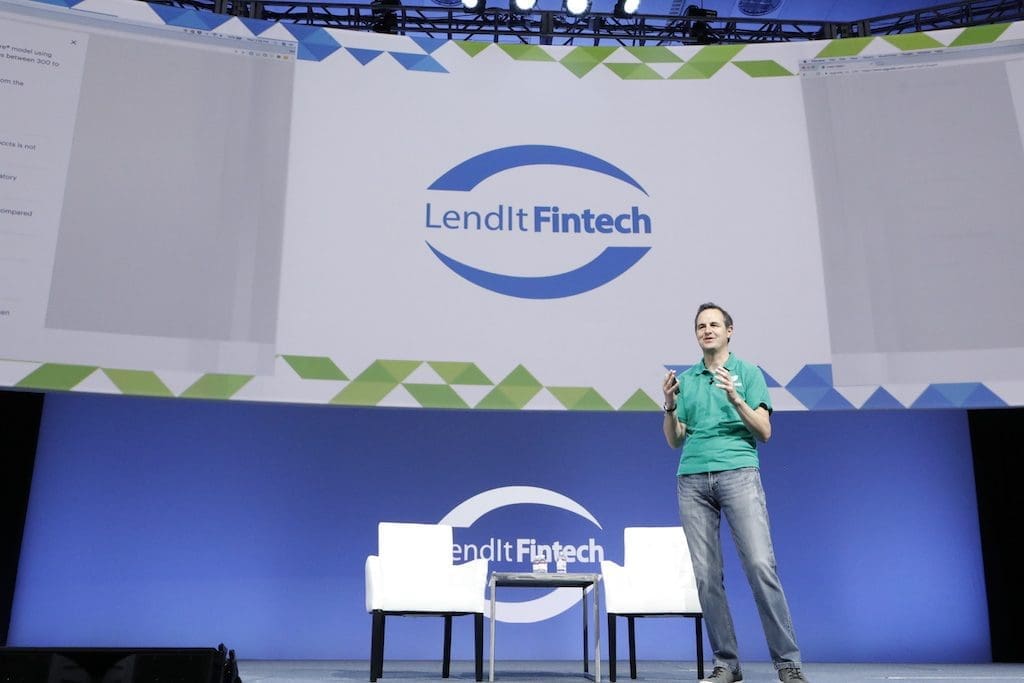
Following Michael Lewis was Renaud Laplanche, the CEO and co-founder of Upgrade who provided his perspective on the future of online lending. He talked about the importance of credit health and showed us some of the work his company is doing to help consumers here. The big announcement, that we covered last week, was their new Personal Credit Line. Renaud explained how this new product has the best attributes of personal loans and credit cards and is a more responsible way for consumers to use credit.
The CEO of Kabbage, Rob Frohwein, said that mono line lending businesses will go the way of the dinosaur. To be relevant in the future online lenders should be thinking of adding product lines but only those that make sense. You should also develop a close relationship with your customers so you can have implicit permission to market additional products. He also talked about the ways that companies can fail when trying to expand their offerings so companies need to expand carefully. But the next phase of fintech will be dominated by those companies seeking a larger slice of the pie.
Our lone Chinese keynote this year was from Yihan Fang, the CEO of Yirendai. She talked about the massive opportunity for online wealth management in China. It is the second largest market in the world (behind only the USA) with a potential size of RMB200 trillion (US$32 trillion). The opportunity for online wealth management is like online lending was in China five years ago. Yirendai’s Yiren Wealth product focuses on the Chinese mass affluent, a huge and growing underserved population in China. They have already amassed over 1.3 million clients and are managing RMB 40 billion (US$6.4 billion).
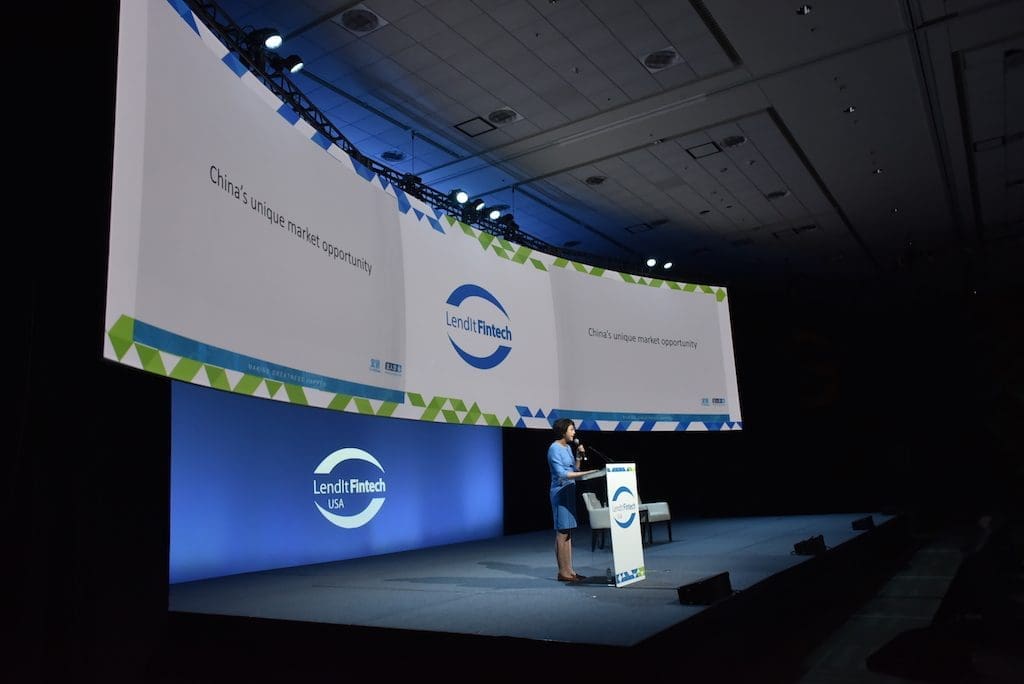
Avid Modjtabai is the Senior Executive Vice President for Payments, Virtual Solutions and Innovation at Wells Fargo. She is responsible for innovation at the bank and has over 35,000 people in her department. She made the case that banks are best positioned to be the disruptors of finance with large customer bases and deep resources. She talked about the work they are doing around identity authentication and how we are moving away from knowledge based authentication to geo location, biometrics and other technologies. She even presented the idea of a cashless future mentioning that in Sweden half of all bank branches are cashless today.
Scott Penberthy’s presentation blew my mind. He is the Director of Applied AI at Google and he talked about some breakthrough technology that Google has been working on. He presented the idea that we can now do mathematics on thought. He explained how AI is now mapping the brain so that machines can now act more like a human than ever before. They first used this technology in Google Photos and developed the technology that recognizes faces and scenes. It is also now being applied to search, ads and voice interactions with Google Home. He ended with this thought: “You can now describe problems with mathematics and have computers find things that humans cannot.”
Tim Draper is an iconic figure in Silicon Valley. He founded the VC firm Draper Fisher Jurvetson (DFJ) in the 1980s and today he is one of the most bullish figures on bitcoin. In this lively discussion he said bitcoin and blockchain have the most potential of any technology in the entire history of the world and warned regulators to tread carefully. He made the outlandish claim that within five years you will only be able to buy a coffee at Starbucks with bitcoin, that fiat currency will simply not be accepted. He also chimed in on Mark Zuckerberg, Jeff Bezos, the President and others in an often combative interview.
Of course, there was more to LendIt Fintech USA 2018 than just the keynotes. We had the BlockFin Summit happening on the third floor focusing on blockchain and cryptocurrencies. There were six simultaneous tracks of content covering all kinds of lending, banking and fintech topics. This year we had the largest expo floor ever with over 200 companies exhibiting. Thousands of one on one meetings were setup using Brella, the networking app. And we had the fourth annual PitchIt @ LendIt competition that was won this year by Creditstacks, who offer a premium credit card for foreign professionals who have recently moved to the USA.
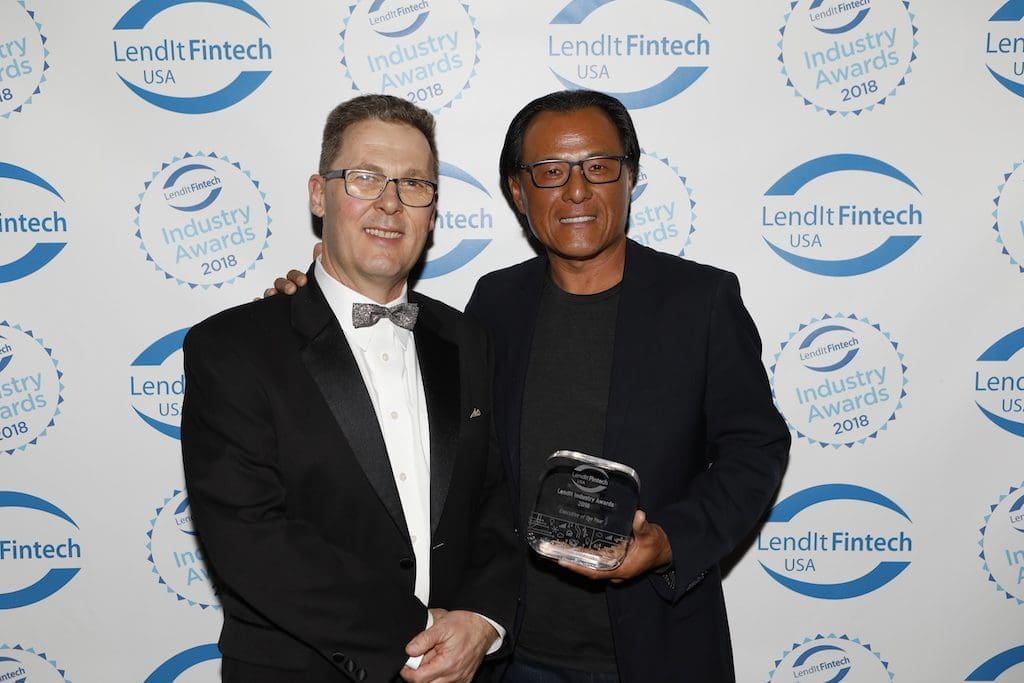
We held the second annual LendIt Industry Awards night. This sold out show celebrated the leaders in the industry as awards were given in 21 different categories. The list of winners is available here. As always there was a few surprises as well as many winners that were expected. It was a fun night and congratulations to all the winners.
For the first time ever we had half day workshops on day three. These were more in-depth and interactive sessions where attendees could participate in discussions on a variety of topics. I spent the morning in the Success Through Diversity workshop where we had an absolutely stellar group of speakers providing practical advice on how to bring more diversity into fintech.
All the keynote videos are available now. Audio from all the track sessions will be available shortly. And you can now view the slide presentations from both the keynote sessions and all the tracks.
Finally, I would like to thank all the sponsors, the attendees, the speakers and of course the entire LendIt team who all worked extremely hard to bring you the best LendIt yet. Next year we will be back in San Francisco again where the conversation will continue.


